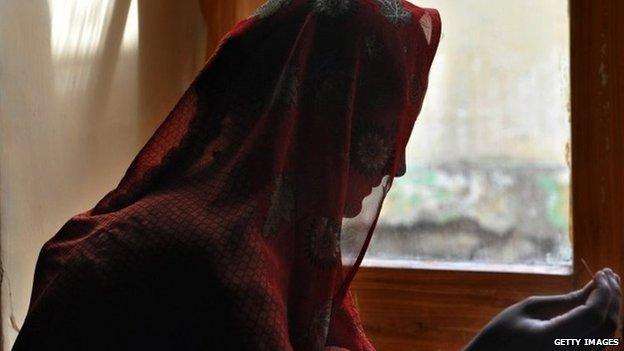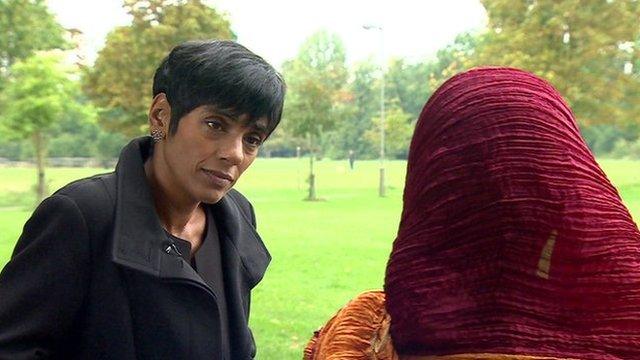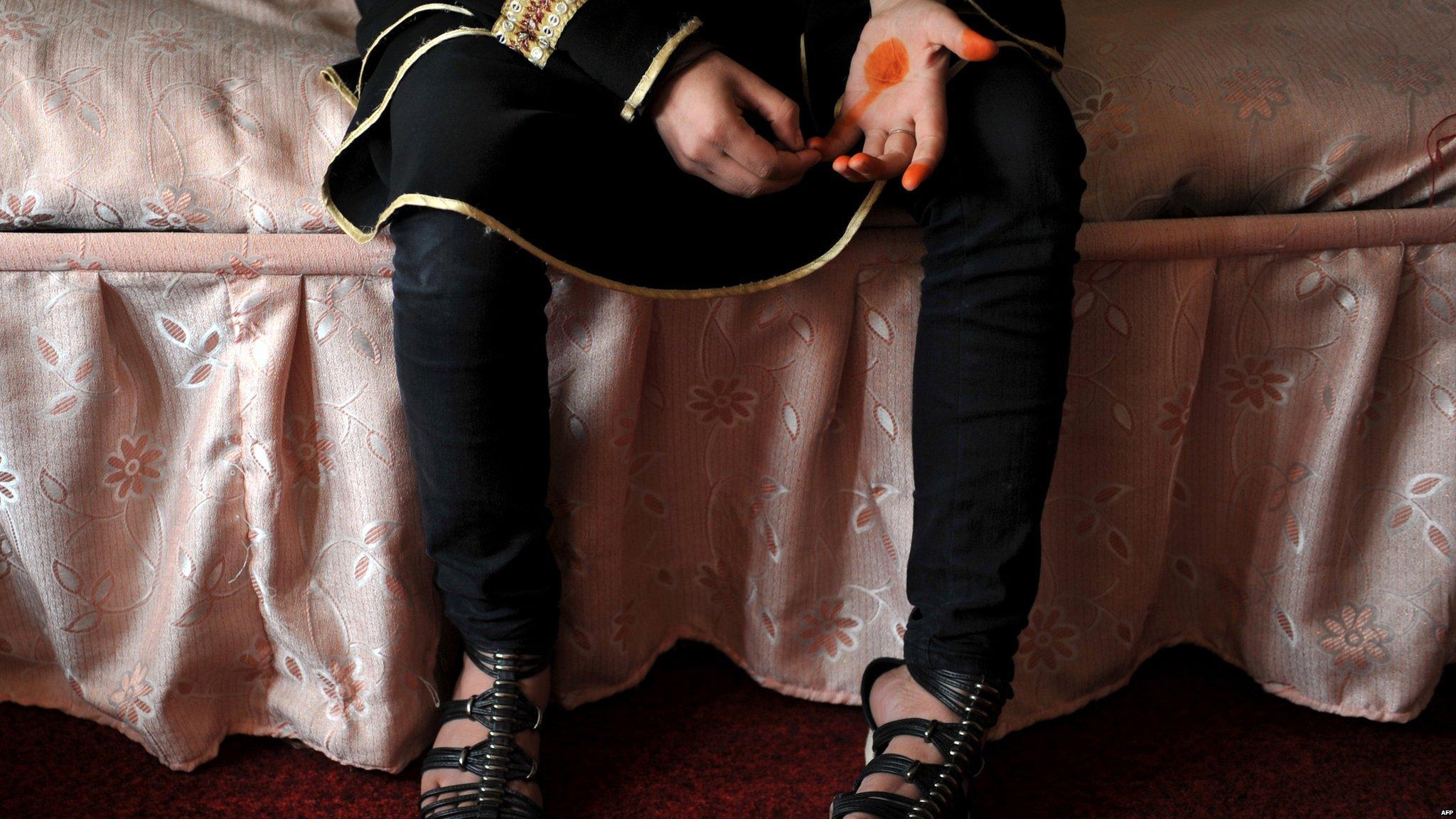Forced marriage: No prosecutions in Scotland under new law
- Published

There are calls for maximum jail terms to be increased from three to seven years
There have been no prosecutions over forced marriage in Scotland since a law was passed three years ago, the BBC has learned.
Forced Marriage Protection Orders can be issued to prevent people being married against their will.
Ten orders have been issued since 2011. Those who breach them face up to two years in prison.
Only one allegation of a breach of an order has been reported to the procurator fiscal.
However, prosecutors said they were not able to take proceedings.
Now moves are being made to toughen up legislation and increase jail terms.
Scottish government proposals would make forced marriage an immediate criminal offence.
Currently, planning a forced marriage is treated as a civil offence and requires a breach of the order for a criminal prosecution to become possible.
It is also planned to increase the maximum prison sentence to seven years - bringing it into line with England and Wales.
The cabinet secretary for equalities, Shona Robison, believes it will "empower victims" and be an "inspiration and a deterrent".
Det Supt William Guild, of Police Scotland, also backs the move.
He said: "It's going to send out a strong message that forced marriage is unacceptable and it may help change attitudes."
Sustained education
But some women's charities in Scotland fear criminalising forced marriage could discourage victims from coming forward.
Rajni Pandher, from the women's aid group Hemat Gryffe in Glasgow, said: "In 2013-2014, at least 14 victims of forced marriage who've come forward claim the fear of antagonising their parents and community stops them from reporting it."
An estimated 8,000 women in the UK are forced into marriage each year.
Cases have been reported from a range of communities including Hindus, Sikhs, Christians and Jews.
Many community groups back some form of legislation but believe raising awareness and changing attitudes at grassroots levels is the answer.
Two years ago, Muslim scholar Shaykh Amer Jamil launched a groundbreaking campaign against forced marriage in Scotland.
Leaflets and sermons were given out in mosques across the country to educate the community.
Jamil, of Glasgow, told the BBC that "long-term sustained education and awareness in the community" is what is needed.
He said: "Once you change that mindset, then automatically behaviour will change".
- Published22 January 2014

- Published4 October 2013

- Published10 August 2013
